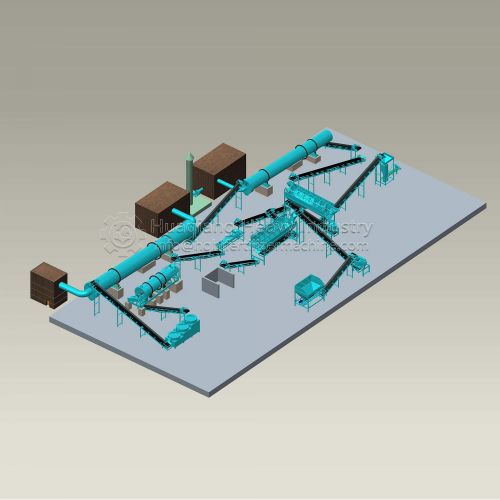Choosing an organic fertilizer production line is a wise move that aligns with the trend of sustainable agricultural development and balances environmental protection with economic benefits. Its value lies in multiple dimensions: ecological protection, industrial upgrading, and market opportunities.

From an ecological and environmental perspective, an organic fertilizer production line is a core solution to organic waste pollution. Livestock and poultry manure, farm straw, and food waste, if left carelessly stored, can breed pathogens and pollute soil and water. Through processes such as high-temperature fermentation, the production line transforms these wastes into organic fertilizer, effectively turning waste into treasure. The composting process kills harmful microorganisms, preventing pollutants from seeping into the soil and water sources. It also reduces greenhouse gas emissions like methane, contributing to the "dual carbon" goals and building a closed-loop agricultural circular economy.
For the agricultural industry, the organic fertilizer produced by the production line is a "restorer" of soil health. Long-term excessive use of chemical fertilizers leads to soil compaction and reduced fertility. Organic fertilizer, rich in organic matter, humic acid, and beneficial bacteria, can improve soil aggregate structure and enhance water and fertilizer retention. Organic fertilizer produced on standardized production lines offers balanced nutrients that are easily absorbed by crops. This improves the quality of agricultural products while reducing the risk of pesticide residues, meeting consumer demand for green food and helping farmers achieve "high quality, high prices."
From a business perspective, investing in an organic fertilizer production line holds considerable market potential. With the promotion of organic agriculture and ecological farming, demand for organic fertilizer has been rising year by year. Production lines offer flexible access to clients such as farms, cooperatives, and agricultural input distributors, creating a stable revenue stream. Compared to the inefficient and decentralized nature of traditional composting, industrialized production lines enable mass production, reducing unit costs and enhancing market competitiveness.
Choosing an organic fertilizer production line is more than just introducing a piece of equipment; it's about embracing the future of green agriculture. It mitigates environmental pressures while improving agricultural quality and efficiency. Driven by both market demand and demand, it serves as an ideal link between ecological protection and industrial value-added.